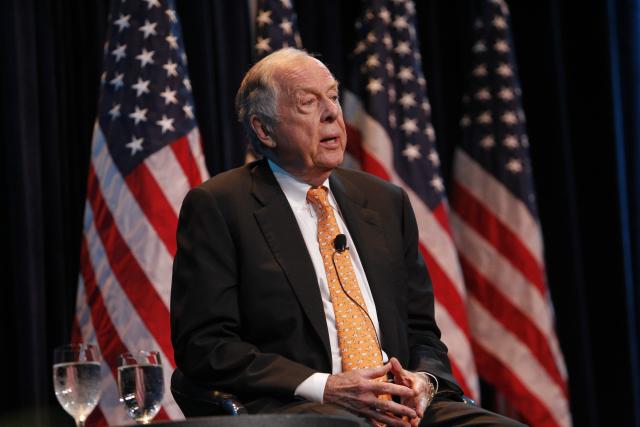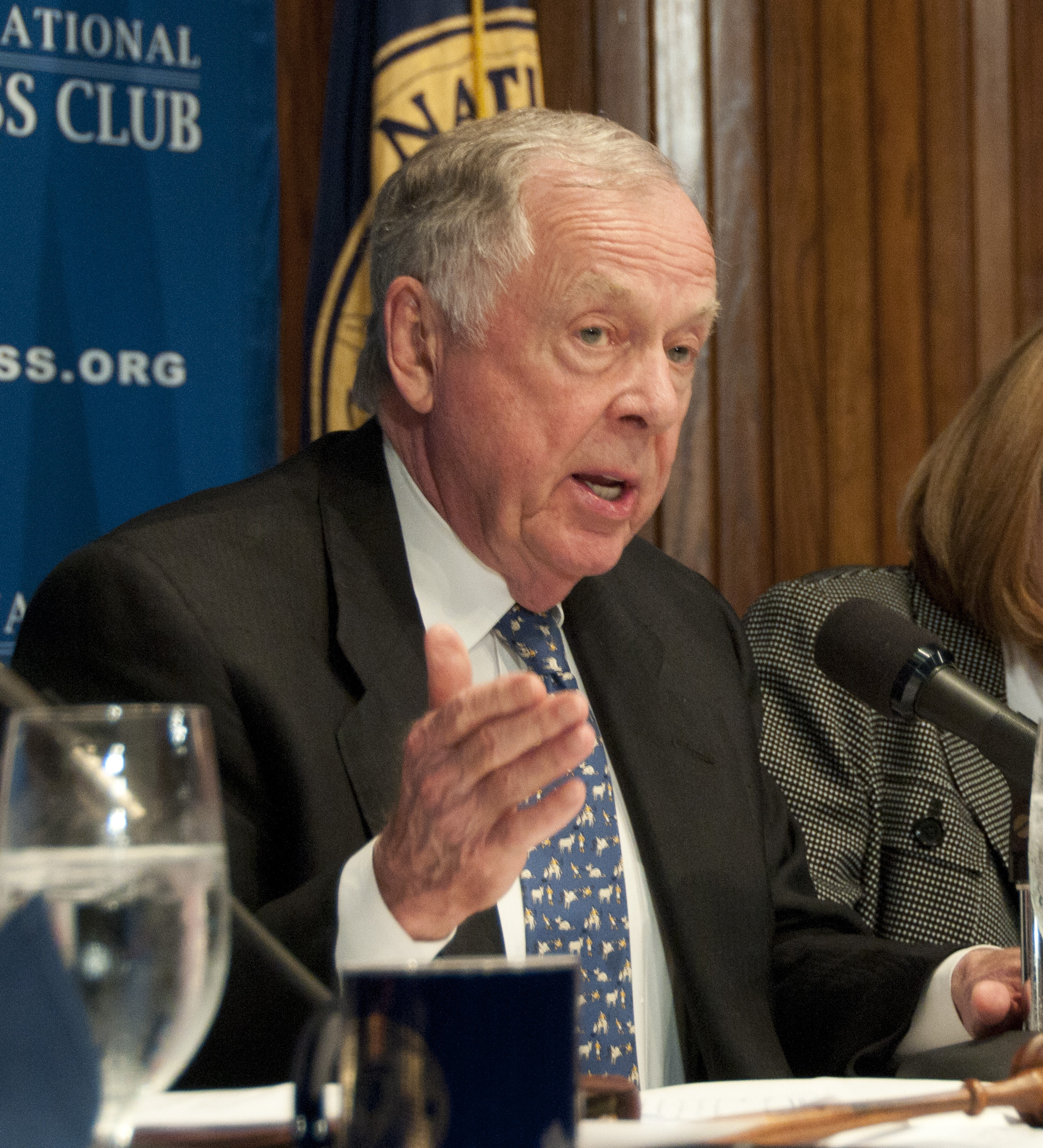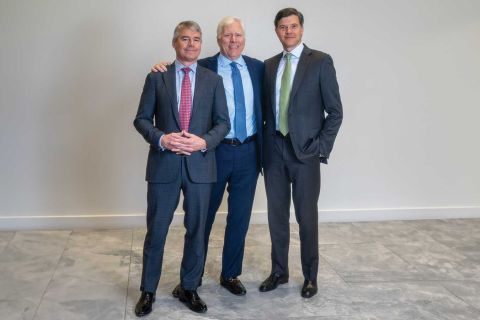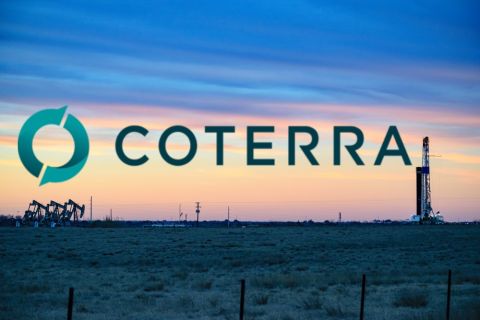
T. Boone Pickens is pictured speaking in November 2011 at Hart Energy’s DUG East conference in Pittsburgh. (Source: Hart Energy)
T. Boone Pickens, the billionaire oilman and hedge fund owner, who touted the Pickens Plan for U.S. energy independence and clean energy from natural gas, philanthropist and corporate raider, passed away at age 91 on Sept. 11.
In his 2008 autobiography, “The First Billion is the Hardest,” he wrote, “Engagement. Involvement. Constant action. That’s the way to live your life.” And he followed that credo well into his 80s, working out every day and bragging about how much he could bench press.
Pickens was born in Oklahoma and graduated with a degree in geology in 1951 from Oklahoma State University (OSU), where the football stadium bears his name.
After two years working at Phillips Petroleum Co., he left in 1956 to found Mesa Petroleum Inc. in Amarillo, Texas, later based in Dallas. It became a large natural gas producer that was active in the Texas Panhandle and the huge Hugoton gas field in Kansas. He also drilled in the U.K. North Sea.
Ultimately, Mesa was stung by high debt and low gas prices. In August 1997, it merged with Parker & Parsley Petroleum Co. in Midland, Texas, to form what is today Pioneer Natural Resources Co., becoming the third largest independent in the U.S. at that time.
“For three years I had the honor to have Boone as a member of our board of directors. He was a great mentor,” Pioneer CEO Scott Sheffield told Hart Energy upon learning of Pickens’ death.
“He told me…he did not like the Permian’s Spraberry-Wolfcamp Field. However, he later confided in me that he was wrong. Over time he became a large Pioneer shareholder, and the Permian Basin has become the largest oil field in the world.”
Pickens touted natural gas all his life, being one of the early chairs of the Natural Gas Vehicle Coalition and co-founding Clean Energy Corp., which went public in 1970, selling renewable natural gas. Pickens served on its board for 20 years.
Andrew J. Littlefair, Clean Energy’s president and CEO, said, “Words cannot express the sadness the Clean Energy family and myself feel at the loss of our co-founder, leader and friend. I worked closely with Boone for 32 years and he became a father-like figure and true mentor to me. …We will miss his devotion, humor, generosity and, most of all, love.”
Pickens burst on the national scene in the 1980s, making the cover of TIME in March 1985, when his actions and that of fellow investors such as Carl Icahn heralded the age of the corporate raider. Today we live in a time of intensifying shareholder activism, but Pickens was a precursor. He was the person who, more than any other in the 1980s, made oil company executives think twice about shareholder value.
Several consolidations that swept the industry at that time were instigated by him. Pickens would buy enough stock in an oil company target to have a voice, and then he used it, pressuring executives to create value by mergers. It was called “greenmail” and many in the industry resented him for it. His attempt to take over Gulf Oil Co. of Pittsburgh in 1983 led to Gulf being acquired by Union Oil of California in 1984, becoming what is now Chevron—the largest oil company merger of the 1980s. Pickens’ investor group made $760 million on the merger.
Ironically, in 1984-85, his Mesa Petroleum made a run at Phillips Petroleum Co., Pickens’ first employer out of OSU. The deal was rebuffed after an outcry, but Pickens made money as the stock rose.
“Boone understood that companies are owned by their shareholders. Of course, everyone recognizes that today, but not many CEOs gave that notion more than lip service in the ’80s,” Bernard J. Picchi told Hart Energy. Picchi was one of the top E&P analysts on Wall Street during that era and manages his own fund today. “But Boone ‘walked the talk’ and put his money where his mouth was—and gave capital the respect it was due. He was an original and will be remembered by all for many years,” he said.

Pickens was an innovator who loved to take risks and always saw opportunity. He formed one of the first MLPs in the ’80s, Mesa LP, betting that natural gas prices would rise. He was also the father of the modern day oil and gas royalty trust. More recently, he promoted a water business and wind farms in West Texas. He said his proposed wind business would become the biggest deal of his career, bigger than the Gulf Oil deal.
He was also the founder and force behind BP Capital in Dallas, a hedge fund that won and lost billions making bets on energy commodities. From 2000 to 2007, BP Capital made a total profit of $8 billion.
He was most recently known for the Pickens Plan, a national campaign to reduce reliance on foreign oil, and for the Pickens Army, his large group of supporters. In his 2008 autobiography, he described his career highlights, setbacks and comebacks. It is filled with what he called Booneisms, such as “When you’re hunting elephants, don’t get distracted chasing rabbits.”
Recommended Reading
Laredo Oil Subsidiary, Erehwon Enter Into Drilling Agreement with Texakoma
2024-03-14 - The agreement with Lustre Oil and Erehwon Oil & Gas would allow Texakoma to participate in the development of 7,375 net acres of mineral rights in Valley County, Montana.
Petrie Partners: A Small Wonder
2024-02-01 - Petrie Partners may not be the biggest or flashiest investment bank on the block, but after over two decades, its executives have been around the block more than most.
CEO: Coterra ‘Deeply Curious’ on M&A Amid E&P Consolidation Wave
2024-02-26 - Coterra Energy has yet to get in on the large-scale M&A wave sweeping across the Lower 48—but CEO Tom Jorden said Coterra is keeping an eye on acquisition opportunities.
CEO: Magnolia Hunting Giddings Bolt-ons that ‘Pack a Punch’ in ‘24
2024-02-16 - Magnolia Oil & Gas plans to boost production volumes in the single digits this year, with the majority of the growth coming from the Giddings Field.
JMR Services, A-Plus P&A to Merge Companies
2024-03-05 - The combined organization will operate under JMR Services and aims to become the largest pure-play plug and abandonment company in the nation.





